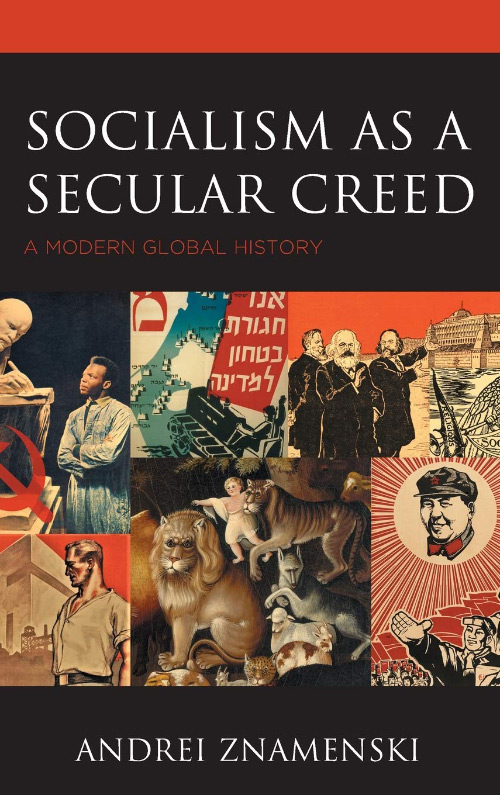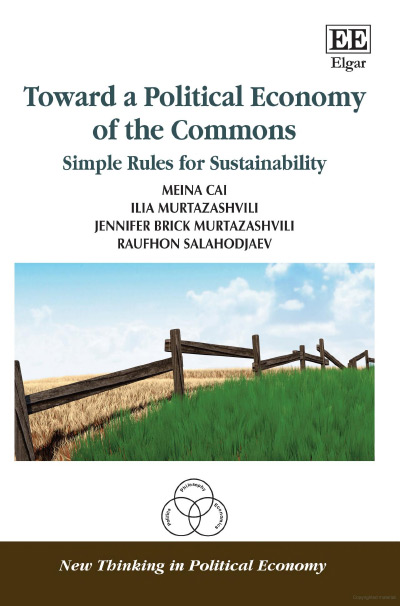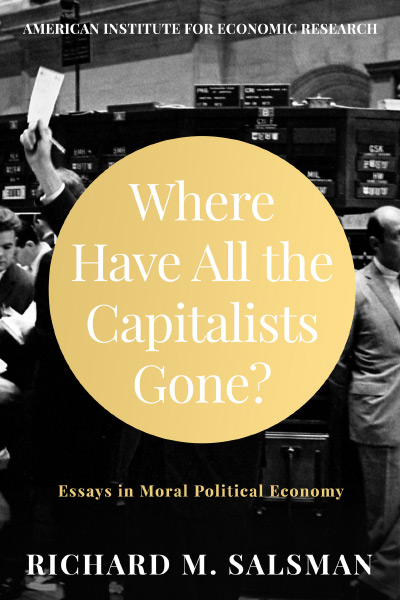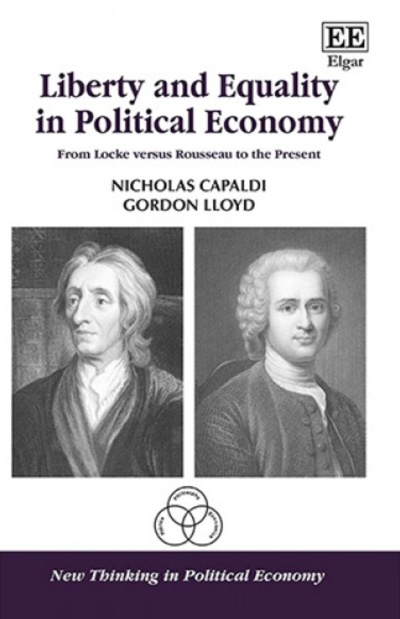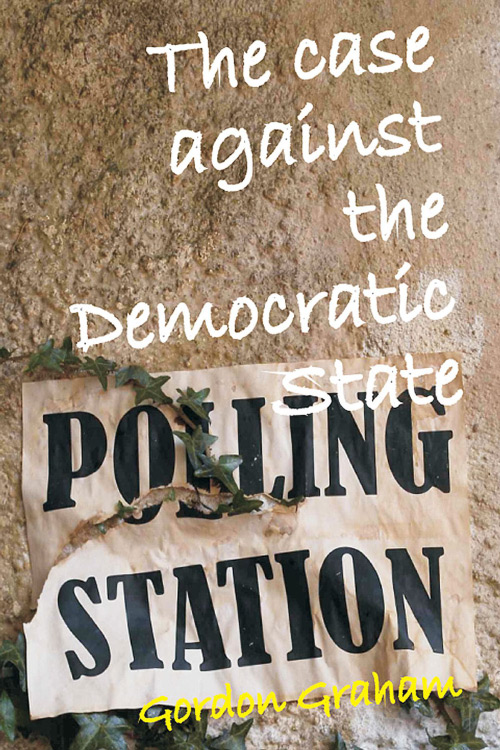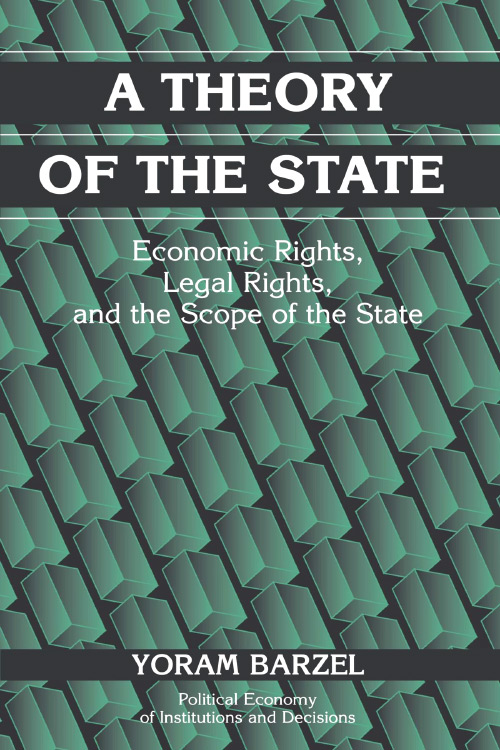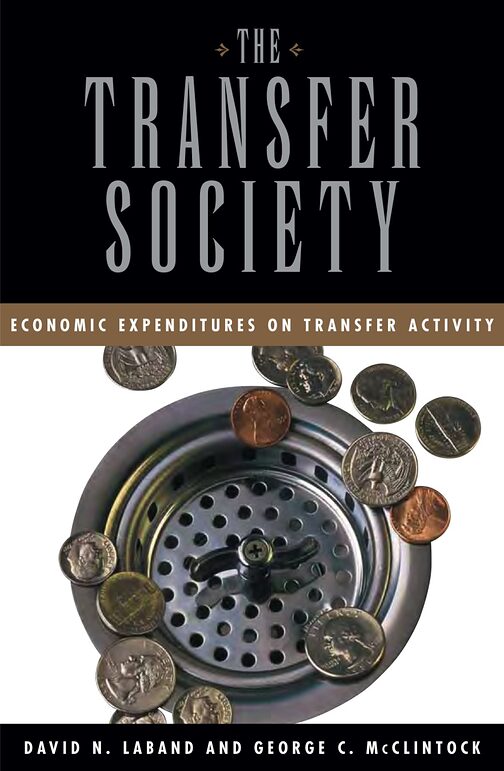“When I embarked on this project of galloping through the 150 years of socialism’s history,” writes Andrei Znamenski in the introduction of this book, “I never suspected that it would be such an exciting and intellectually challenging venture” (p. xxxii). The same thing may be said by the reader, after going through the 450 pages of a veritable tour de force in historical knowledge, analysis and interpretation.
Znamenski, a historian of religions and culture whose work has explored Christianity, Shamanism and Tibetan Buddhism, both in their doctrinal and their institutional and social manifestations, is exceptionally positioned to apply the secular religion framework in his studies of socialism. Moreover, he is a scholar who has a first-hand experience of a real-life socialism regime, being born and partially trained (including in Marxism) in the Soviet empire. Thus, in a sense, the book may be seen as part of a lifelong effort of trying to understand a personal experience that has marked him intellectually and existentially. Znamenski is not a dogmatic external critic. He’s a careful, thoughtful, critical thinker who is trying to make sense of a phenomenon he experienced from inside. The result is a fascinating book.
Socialism, writes Znamenski, is a form of political religion, “a secular creed that emerged with the rise of [the] modern world and became its radical manifestation” (p. xiii). It is a result of the twin belief in the industrial revolution and in science while at the same time, it is a reaction to the impact of the industrialization and the scientific rationalization of the world. The book traces the history of this phenomenon that has roots in the belief systems of human beings but that has formidable economic, political and institutional implications.
The structure of the book is straightforward. It follows chronologically the evolution of the socialist phenomenon from the nineteenth century to present. Each major episode in the evolution is marked by a chapter and each chapter, notes the author, should be read like an essay in interpretation. The result is both a chronological interpretation of the development of socialism in modern history and a set of essays dealing with socialism.
The first major theme of the book is, obviously, socialism as a secular creed, as a surrogate religion. The book explores the process by which traditional religion lost social influence—it became marginalized—while at the same time, the void created by this process was filled by the faith in scientific prophecies. At the same time, it tracks down the link between the cult of science, secularization and the rise of the omnipotent state as an instrument of social engineering. Thus, we reach the point, in the twentieth century, when the appeal to the authority of science “became for various ideologists a standard practice used to justify various grand projects of social engineering, mass mobilization, deportations, and social welfare schemes they advertised as progressive and benevolent” (p. xxv). Out of the worship of science, technology, and state has emerged a formidably resilient collectivist project of social, cultural and even biological engineering which has survived the failure of the grand social experiments that it inspired to in the twentieth century. In brief, although framed as a historical overview, the book is, in the end, about the present and the future.
Since the secular religion of socialism was the child of modernity, explains Znamenski, one needs to address the relationship between modernity and the sacred. That is in fact the second dimension of the project: a modernization-studies perspective on socialism as a secular religion. Although the author distances his interpretations from some modernization theorists, the very fact that he is incorporating modernization theory lenses into the secular religions approach generates a powerful distinctive framework which situates this book in a class by itself, within the relevant literature.
That being said, this combination of “modernization theory” and “socialism as secular religion” perspectives is not the sole important contribution of this remarkable book. A major contribution comes from its path-breaking effort to methodically explore the emergence of the identarian left on the current public scene in the West, while illuminating its intrinsic link to the classical socialist movement. This is the point where the book becomes particularly relevant for our understanding of the current circumstances.
The book offers an account of the fascinating mutation of socialist thinking, from a class-based socio-economic interpretation of history and politics, to a culture and identity-based program for action. In Znamenski’s view, the puzzle of the transformation of socialist thought has a simple solution: The new identity-based versions are not a major departure from the socialist tradition but the activation of an inherent component of the socialist worldview. The two sides were always intrinsically present in socialism.
Following historian Martin Malia, Znamenski draws attention to an intriguing pattern: Although socialism presents itself initially as internationalist “as soon as dust settles down and the millennialism evaporates, good old nationalism always kicks in eventually supplementing or overriding internationalism” (p. xxv). The book documents how identity, ethnicity and nationalism are so easily blended with socialism and how class warfare and class identity mutate so easily into ethnonational, identitarian and racial warfare, and the other way around: “The ideological border between class justice and racial justice is very slim just as is the border between capitalist world financiers and Jewish world financiers” (p. xxvi).
Looking at how various cultures and societies have responded to socialism in various historical circumstances, Znamenski notices the varieties of forms in which socialism is indigenized and hence moved from the path of internationalist and structural economic and political thinking to the path of identity and particularism: “No matter how hard socialists have fought to stay cosmopolitan and internationalist,” their political projects and regimes “always end up placating various forms of nationalism and identity politics” (p. xxvii).
Based on this profound observation, the book thus sets the stage for a nuanced understanding of the so-called “cultural turn” that took place in the West, leading to the repudiation of class in favor of race, gender and identity, as the pivotal forces around which the socialist discourse and strategy operate. In this light, the recent manifestations of identitarian progressives and woke political religion are in fact the materialization of the aforementioned pattern of socialist class warfare mutating into identity politics. Focusing on the Western developments taking place in the last fifty years or so, Znamenski documents how the New Left Cultural Marxists have served as an intellectual bridge between old Marxism and the current woke progressives, how deconstruction and postmodernism have prepared the ground for identity politics, as an exit of the left from the dead-end of older versions of socialism, and how the old economic categories of Marxism have been filled with a new content of a cultural-identitarian nature.
Another remarkable reversal from classical socialism to the contemporary varieties of socialism is associated to eco-socialism and Znamenski adds this specific case in support of his argument. While the original claim of socialism was that capitalism was unable to produce efficiently and it was profoundly unjust in its distribution, one can notice by the middle of the twentieth century a radical repositioning of socialist thought. The concern motivating socialism became the dangers of affluence and the environment, now that the productivity of socialism, its efficiency and its technological capabilities have proven deficient. Thus, the anti-capitalism spirit has taken a new form, as environmentalist rhetoric grafted on identity politics have become its motivating forces. Theologically speaking, explains Znamenski, “such re-reading of the foundational texts of Marxism makes a perfect sense. After all, religious creeds regularly perform similar revisions of their sacred books, adjusting them to contemporary needs and settings” (p. 378).
Yet another feature that makes the book extremely valuable both for those who just get introduced to the theme of socialism and for specialists, is the fact that it presents in synthetized and clarifying manner a multitude of otherwise confusing topics associated with the history, vocabulary, and mythology of socialism. For instance, the discussions regarding socialism, communism, and social democracy have constantly been plagued by countless claims and counterclaims regarding the terminology, or the labels to be used in identifying and describing the phenomena of interest. Such ideologically and strategically motivated semantics debates are an ongoing problem at the core of socialism studies.
In this respect, the book overviews the history of the evolution of the labels used to identify or promote various aspects of the socialist agenda, looking at the competition between social democracy, socialism, national socialism, communism, progressivism, Trotskyism, cultural Marxism and other “isms” over the last 150 years or so. The book gives an excellent account of how evolutionary and revolutionary forms of socialism were labeled in various ways, at different moments in time, and of the manner by which socialists have repositioned and juggled labels at a dazzling, confusing and mesmerizing rate.
The mere inventory of this game of labels is immensely illuminating. For instance, one gets a better sense of the strategies used in what the author calls “the theological argument of left-leaning authors” according to which “the political systems that had existed on the vast spaces of Eurasia, either had nothing to do with genuine socialism or grossly distorted the socialist creed” (p. xxx). The practical, unmistakable implication of such reasoning is clear: what we have seen so far was not “real socialism.” Real socialism has not yet arrived. Thus, the etymological and historical study of the labels gives us a better sense not only of the phenomenon itself, but also of the “bizarre game” played by socialist thinkers in their endeavor to “bypass the moral requirements and simultaneously save the ideology” (p. xxx).
In this respect, the author’s background in history of religions, with their schisms, heresies and inter-confessional competition, is very useful in illuminating what is at stake. A very important methodological and epistemological position is in fact revealed by this discussion: In the study of the socialist phenomenon, one should not be deceived by labels and their ongoing dance. One must go beyond the veil of language, in order to identify the phenomenon itself. There is a core element in the socialist phenomenon, broadly defined, persistent in all its facets and historical manifestations: “Scholars are still reticent to recognize that both social democracy and communism not only sprang from the same sources, but also shared the same set of notions, or as Germans would say, Gestalt” (p. xix). To engage in such a clarificatory endeavor, requires the capability to counter the confusing twists and turns associated to the manifestations of socialism in modern history. The apparatus of the historian of religions employed by Znamenski seems to be an ideal instrument in this respect, when deftly applied, as it is the case in this book.
There is one additional contribution that sets this book apart. For the first time, as far as I know, we see a book advancing a framework for a coherent and historically documented approach to the problem of the anti-neoliberal intellectual movement and its associated rhetoric and literature. The massive and ubiquitous literature fixated on the concept of “neoliberalism” and employing—under the guise of historical and social scientific analysis—an ideologized interpretation of the history of the second half of the twentieth century, is familiar to both scholarly and non-scholarly audiences. The vast academic and journalistic industry aiming to describe, debunk and denounce something called “neoliberalism”—frequently employing pejorative rhetoric and blatant propaganda devices—is both a mass media and academic phenomenon. There are indeed various reactions in response to the abuses of interpretation and scholarship associated with it. However, most reactions so far have been specific rejoinders to the dubious, controversial or abusive factual, theoretical and historical claims, which are its trademark.
Znamenski’s merit is that he basically turns the table and redefines the terms of engagement: He places what he calls the “anti-neoliberalism thought collective” and its intellectual production in the broader perspective of the history of socialism. The approach advanced in my book, writes Znamenski, “may be read as a mirror image of what some social scholars practice under the rubric of neoliberalism studies” (p. xviii). The move is thus making them, in their turn, an object of study, as an ideological and political phenomenon in itself, by illuminating the context of their motivation and modus operandi. The analogy or symmetry is, however, only partial. Znamenski is not suggesting a polemical ideologized approach mirroring the practices of the anti-neoliberalism thought collective, but a serious research program. Emulating the rhetoric and excesses of the prototype is not part of the agenda. In this book, he writes, “I’m trying to pinpoint where, how and under what circumstances socialist rhetoric, intellectual culture, organizations and ‘governmentality’ have influenced specific historical periods, countries, and segments of societies” (p. xviii). This is the setting in which one could imagine a research program that places the anti-neoliberalism thought collective in the context of the larger socialist thought collective, identifying how socialism, as a secular creed, is framing, motivating and distorting the mindsets and orientation of its members.
In brief, Znamenski is not advocating a strategy of labeling and denunciations, but a reasonable application of the framework of a well-established research program, to the study of a community of practitioners of a particular secular religion, socialism, as they engage in the production and reproductions of beliefs, rhetoric, and operational interpretations of their own social environment. It is a conjectures-and-refutations, careful historical investigations-based approach, that once embraced, may set the stage for getting closer to puzzles such as: What makes otherwise decent scholars like Philip Mirowski ardently and restlessly generate unhinged speculations verging on conspiracy theories under the appearance of scholarship, or what motivates less gifted authors (who are the larger part of the advocates of the anti-neoliberalism industry) engage with such zeal in outstandingly partisan, activist and sectarian rhetoric and behavior.
To sum up, the book is a remarkable contribution to the literature. First of all, looking back at the last two centuries, it is a profoundly insightful synthesis of the scholarship produced so far regarding the “classical” socialist phenomenon. At the same time, looking ahead, the book may be seen as a pathbreaker of a new stage, a herald of a new era in the study of socialism. It re-focuses the approach, highlighting the shift from proletarian and class warfare towards the cult of minorities and the transformation of the socialist project from a modernization of production, distribution and quality of life movement, to a project in which “a selected minority group is relegated to the role of both victim of the political system and at the same time ideological prison guards that are expected to police the rest of the society about proper ways of behavior” (pp. 386-7). In doing that, it sets up the stage for understanding the anti-neoliberalism literature as part of the larger phenomenon and as a component of the ideological apparatus instrumental in these transformations. And, above and beyond all that, it helps us to get a better sense of the relationship between the dynamics of belief systems and institutional and governance structures via political movements.
Socialism as a creed has demonstrated its resilience. It has passed the threshold from industrial-advanced democracies to postindustrial society mutating into a new type of ideological form. This book draws our attention to the fact that the lessons from the previous avatars of socialism apply to the new avatar, but only up to a point. It is up to the new generations of scholars to explore the new forms of socialism, in the current social cultural, technological, and economic circumstances of the twenty-first century. Therefore, it is fully justified to conclude that this book is special in a setting in which—in the last couple of decades—we got used to thinking that books about socialism are books written about the past. This book is about the future. Or to better put it: it is about the extended present.
| Other Independent Review articles by Paul Dragos Aligica | |
| Summer 2022 | The Ideological Commissar and the Institutionalization of Indoctrination: Insights from the Communist Experience |



